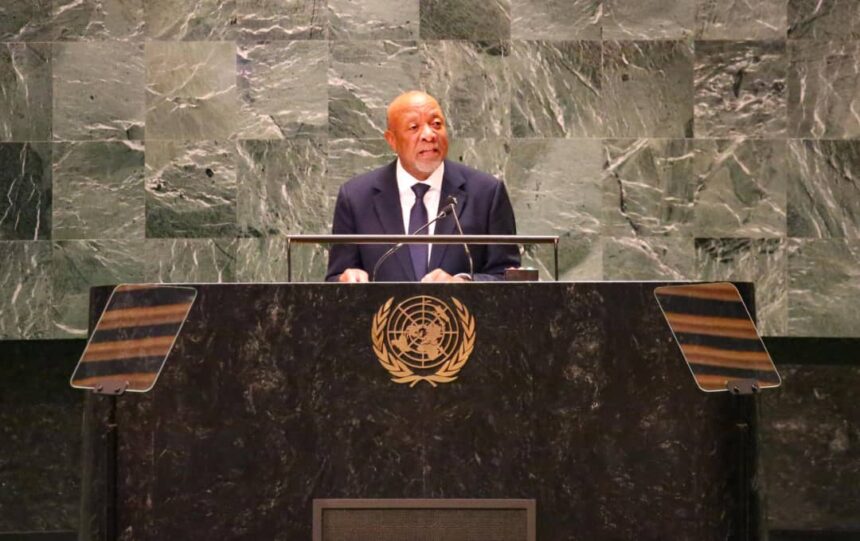President Nangolo Mbumba has emphasised the need for reform in global governance, particularly within multilateral institutions like the United Nations Security Council.
He said Namibia’s interest in the Pact for the Future is rooted in the recognition that the global institutions, established in 1945, have failed to adequately reflect African needs and aspirations.
Speaking during the 79th session of the United Nations General Assembly (UNGA), Mbumba called for structural changes to address today’s pressing global challenges, calling for greater representation and equity for African nations on the world stage.
“At the heart of our quest to rebuild trust in multilateralism is a legitimate demand to be recognised as equal partners – partners who can be trusted. (We must be equal) partners in the fight against war, poverty, global injustice and inequality,” he said.
Mbumba, who took centre-stage at the UNGA, likewise addressed Namibia’s urgent priorities on issues ranging from climate change to gender equality and international justice.
He noted that changes in ocean temperatures had adversely affected fish stocks, with long-term implications for livelihoods, ecosystems and tourism.
He also highlighted the El Niño phenomenon’s devastating impact on food security across Namibia and the SADC region, revealing that the country had declared a State of Emergency to address the severe effects of the drought.
Turning to gender equality, the Head of State emphasised Namibia’s progress: “As we approach the 30th anniversary of the Beijing Declaration, we are presented with a renewed opportunity to strengthen gender equality”.
He proudly announced that Namibia ranks among the top nine countries globally, having closed at least 80% of the gender gap. “In the past 12 months, we have achieved perfect parity in the National Assembly, where 50% of representatives are women.”
Mbumba then expressed hope that the United Nations will have a female secretary general soon.
Sustainability
Addressing Namibia’s plans for sustainable development, he highlighted the country’s commitment to efforts to combat climate change through green industrialisation.
“Namibia is working to develop a sustainable energy mix to support its ambitious industrialisation agenda,” he remarked, adding that this effort is part of the global push to decarbonise industries with high emissions.
He called on developed nations to scale up support for developing countries to facilitate gradual energy transitions.
On international peace and security, Mbumba passionately spoke of the situation in Gaza.
“There is an urgent need for this assembly to support the modalities to actualise the advisory opinion rendered by the International Court of Justice regarding the ongoing conflict in Gaza,” he said, condemning the continued Israeli occupation, and calling its actions a “genocide”.
The President urged the global community to demand a ceasefire, and ensure that humanitarian assistance flows unhindered into Gaza.
He also touched on the economic challenges facing Cuba and Zimbabwe, reiterating Namibia’s calls for an end to economic sanctions.
“Economic hardships continue to affect the sister Republic of Cuba, in stark contrast to the ideals of inclusivity and the goal of leaving no one behind. Namibia calls for the end of the economic, financial and commercial blockade against Cuba. Namibia calls for the removal of Cuba from the list of state sponsors of terrorism,” he emphasised.
In the same vein, Mbumba reiterated calls for the immediate and unconditional lifting of illegal sanctions against Zimbabwe, which he said hinders that country’s capacity to achieve sustainable development goals.
Furthermore, the United Nations’ system can be strengthened if there is collaboration.
“By choosing the way of collaboration over enmity, peaceful dialogue over war and conflict, and de-escalation over escalation, we can achieve our shared goals of a more peaceful, just and prosperous world,” said Mbumba.
Caption:



